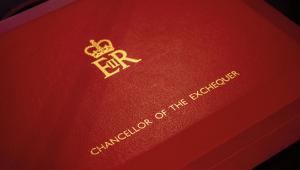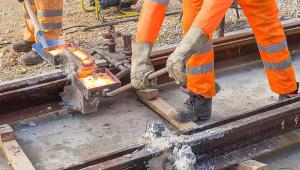The North is livid. The government’s decisions to either cancel or cast doubt on a number of rail electrification projects for the North, while committing to Crossrail 2 for London has us incensed. That they tried to spin this as investment in ‘bimodal’ trains, that simply have the ability to shift from diesel to electric, adds insult to injury. Furthermore, this raises important questions of accountability given that investment in northern connectivity was in the Conservative Party manifesto, while Crossrail 2 was not.
While it is infuriating, this will come as no surprise. Governments have casually disregarded northern potential since the industrial revolution. England has the most centralised politics in the developed world, and apart from London we have no powerful regional and sub-regional governments committed to the prosperity of their region. Instead, successive central governments, chasing national GDP growth, have treated London as the golden goose, and doubled down on investment in the capital. The fact that London has a mayor and an assembly tips the balance even further in its favour.
It is in this context that these decisions on transport infrastructure are made. Worked up by Transport for London and the mayor, which both do an excellent job of promoting the capital’s interests, it cannot be ignored by the secretary of state who not only works there but represents a constituency (Epsom & Ewell) set to benefit from Crossrail 2 itself, or the 89% of Department for Transport staff work in London. The North doesn’t enjoy such privileges. The fate of its 15 million people; its £300bn economy; its five major cities, 29 universities, eight major ports and a major international airport are almost entirely governed by distant, often out-of-touch politicians in London.
These are just the latest transport investment decisions to have favoured the capital. Our analysis of the last ten years of public spending on transport showed that London received on average £680 per head each year; the North got £282 – less than half as much. And that’s before accounting for how public money leverages in private investment.
Without action, this pattern is going to get much worse. If we look at the national infrastructure and construction pipeline, we see a grotesque disparity in spending plans going forward. Our calculations show that, from 2016-17 onward, planned public and public/private transport investment in the capital amounts to £1,940 per head. In the North the figure is just £427 per head. This is before Crossrail 2 is accounted for, with its £31bn price tag amounting to an eye-watering £3,400 per head. This would mean London receiving more than 12 times the spending per head than is currently planned in the North.
But the North is no longer quite as powerless as it was. Andy Burnham and Steve Rotheram, as newly elected mayors of Greater Manchester and Liverpool City Region, have condemned these decisions in the strongest of terms, and are gathering support from the North’s MPs. IPPR North today launched a petition to rally public support behind investment in the infrastructure people need to live their everyday lives. The newly constituted Transport for the North is busy behind the scenes, drawing up plans for transformative infrastructure.
But in the longer term, decisions about the North should be made in the North, by the North and for the North. Transport for the North needs far more power, and a new Council of the North needs to take shape as part of a federal UK. Only then will the people of the North, and the country as a whole, be able to benefit fully from its substantial assets.




















